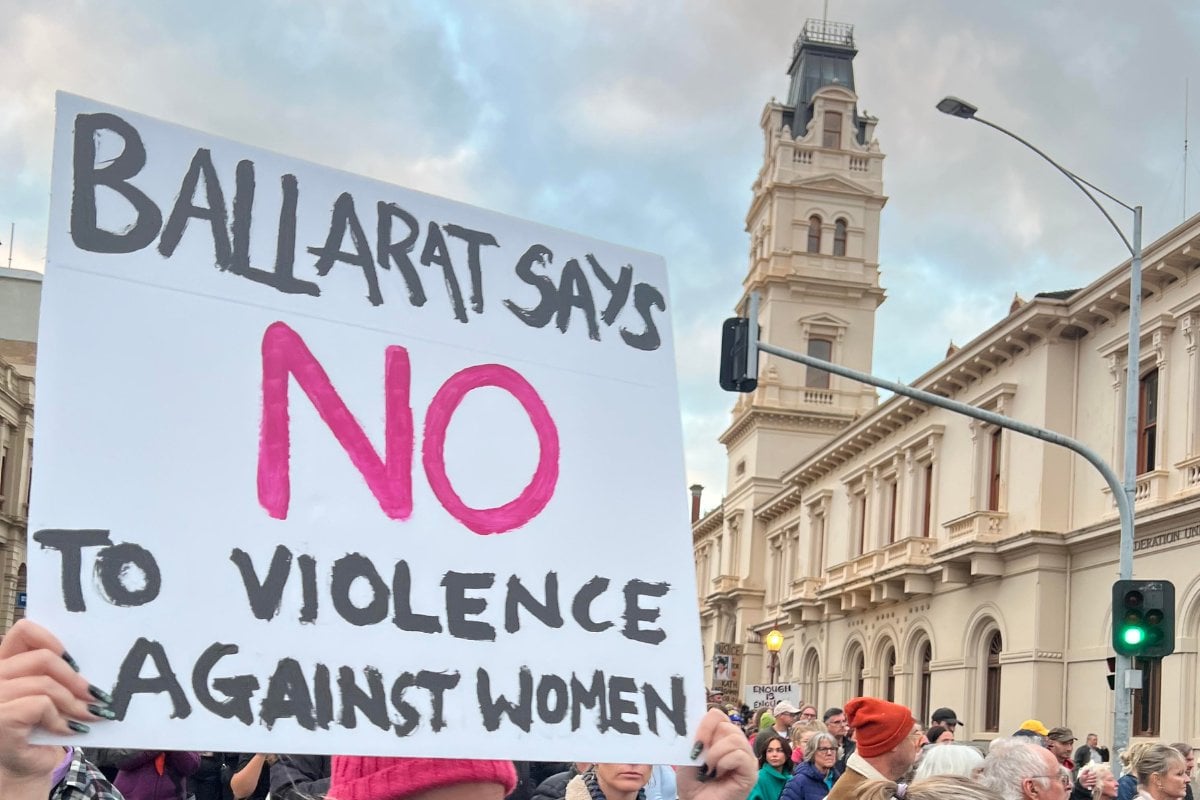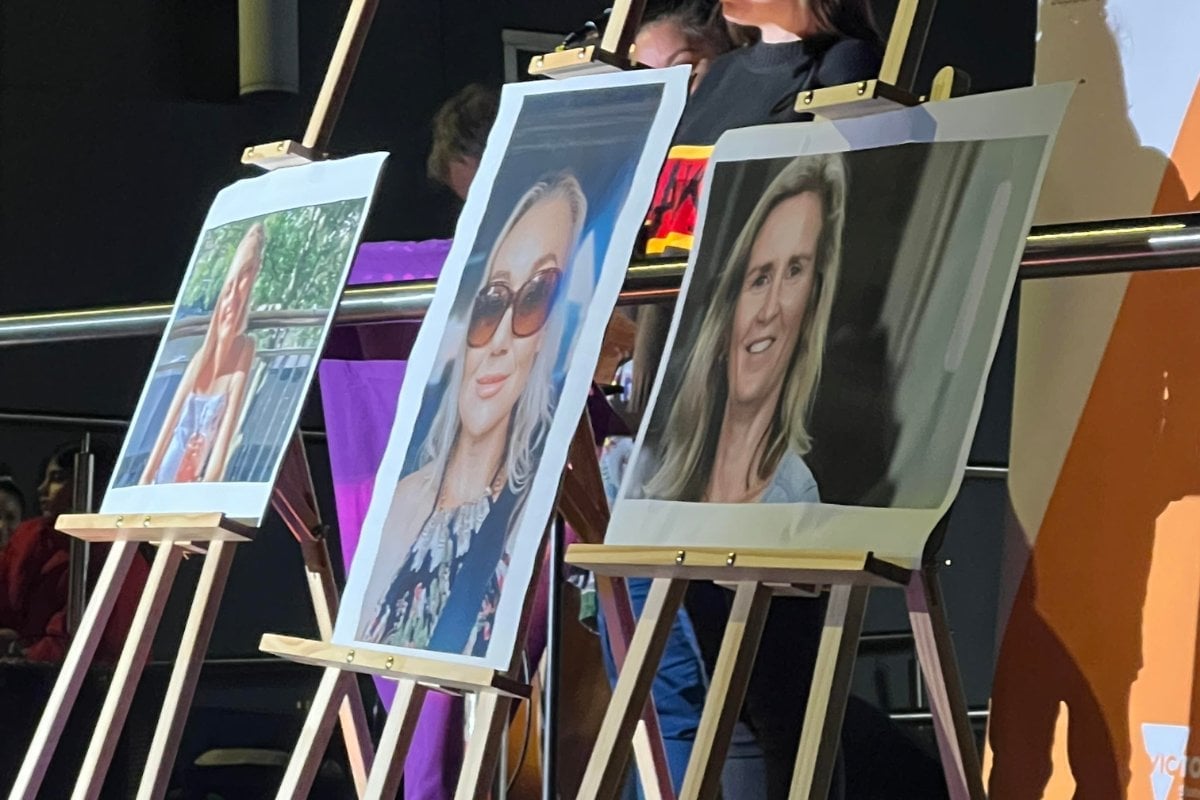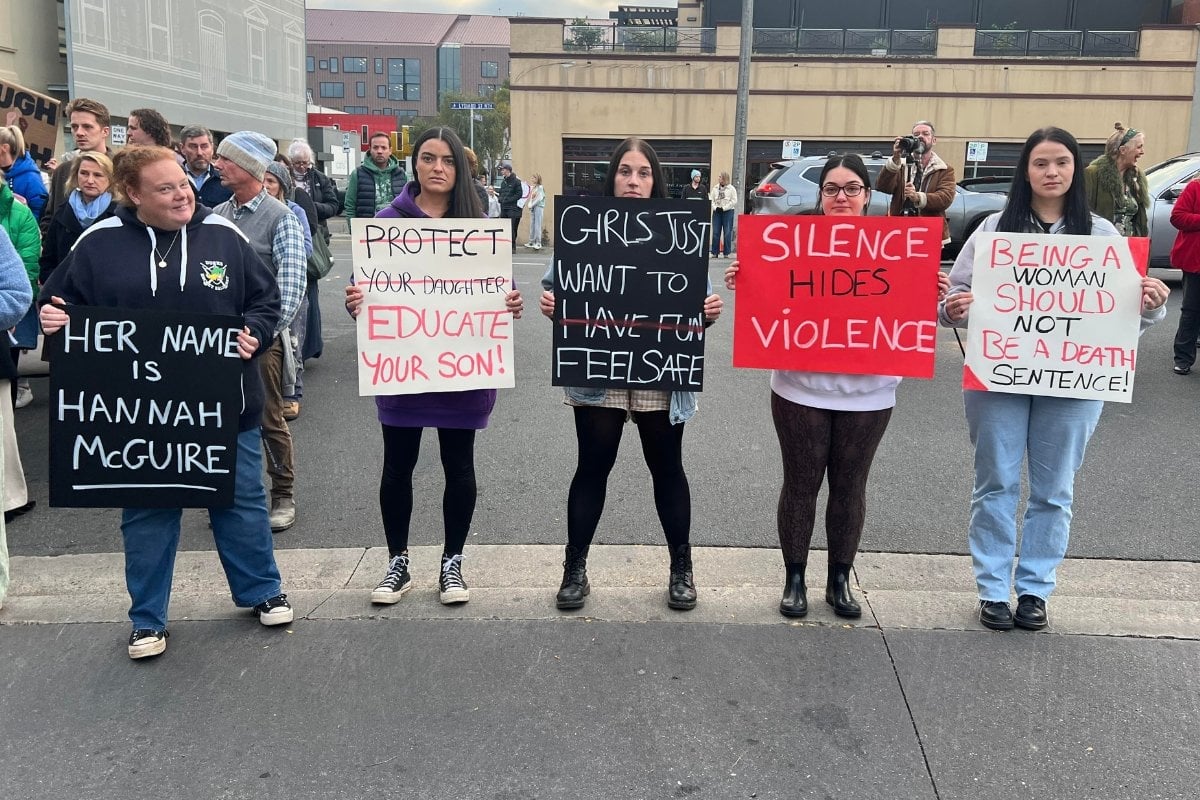
This story discusses domestic violence.
In my daughter's bedroom is a framed photo of my sister Coco at the 2017 Melbourne Women's Day March. The photo was taken only a couple of weeks after I'd given birth to my first child, and I remember Coco texting it through from the protest frontline while I sat at home grappling with my newborn.
In the photo, Coco is holding a sign which reads, "I'm marching for my niece. I'm marching for the next generation."
That year's march was particularly poignant. On January 21, the Women's March brought millions of people to the streets of their hometowns – a global response to the election of President Donald Trump, and an Inauguration Day message to the world that equality and women's rights matter, and that sexism, abuse and misogyny should never be tolerated. It was the largest single-day protest in US history, sparking hundreds of global rallies.
This mood of solidarity was repeated at Women's Day events around the world.
Fast forward seven years and we are still marching for women's rights and calling for government reform. We are still chanting for a better future so that our nieces and daughters don't have to imagine their names and faces ending up in news headlines, synonymous with violence and tragedy.
On Friday night, I marched because three women in my hometown Ballarat have been allegedly murdered – Rebecca Young, Samantha Murphy and Hannah McGuire.



